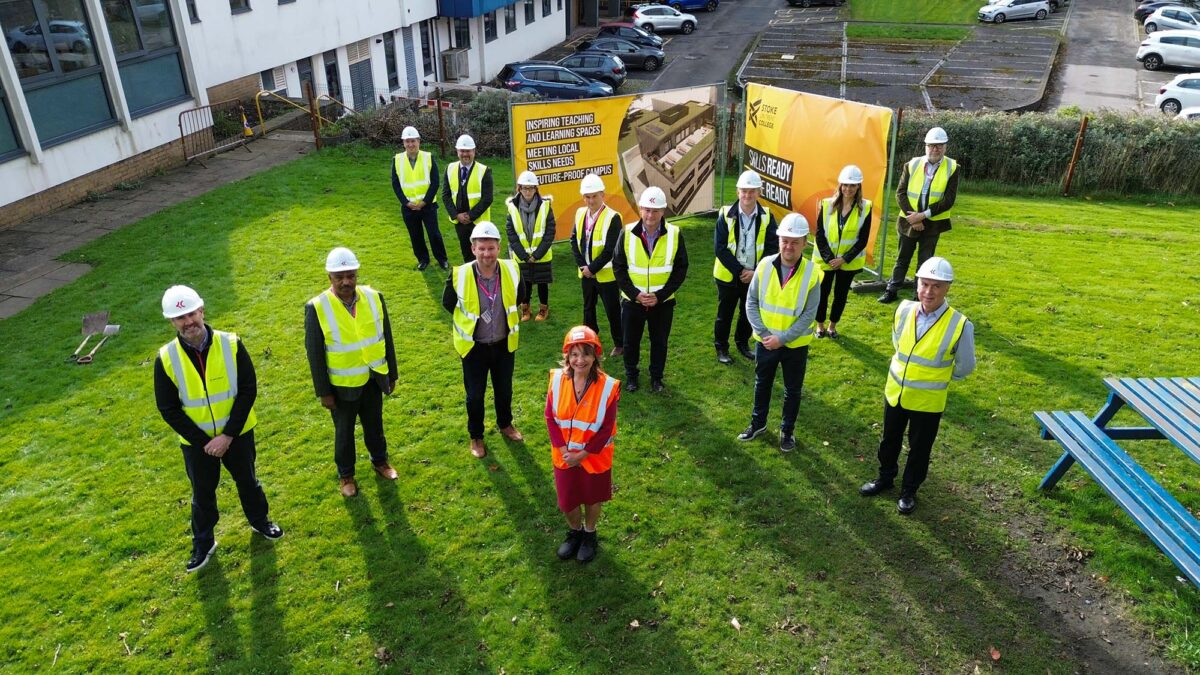Coaching Culture is the key to tackling uncertainty in the education sector

New insights from BetterUp show that uncertainty in the education sector has nearly doubled in three years. Dr. Kristi Leimgruber, Behavioural Scientist, PhD explains how coaching culture enables workplace success.
Recent research from BetterUp’s Coaching Culture Insights Report shows that uncertainty in the education sector has nearly doubled in the last three years, which should come as no surprise given news of debates and strikes over fair pay and workload dominating recent headlines.
However, the impact increasing uncertainty is having on staff within the sector cannot be understated. According to the Teacher Wellbeing Index, 72% of teachers report being stressed and overworked, while 77% of teachers report negative impacts on their mental health as a direct result of their work.
With poor well-being and excessive workload driving a mental health crisis within the education sector, it is no wonder that engagement and retention are suffering. In fact, recent data from the National Education Union shows that nearly half of the teacher workforce is planning a career change in the next five years.
This raises the question – what can education leaders do to combat this? The solution starts with cultivating a coaching culture.
Embedding a Coaching Culture
Coaching Culture means setting up the foundation – the delivery system and pathways – by which any transformation or organisational needs can be addressed over time. People play an essential role in helping to fuel an organisation’s transformation – whether it be growth and expansion or technological advancement. In order to do so, however, they need to be provided with the tools to navigate change with confidence and clarity.
Through consistent organisational, co-worker and managerial practices, an environment of continuous learning and development empowers employees at all levels to address business needs dynamically. However, these benefits are twofold, and while employees gain confidence professionally, an embedded Coaching Culture can also improve psychological safety and a sense of belonging. More than just benefiting business growth, this environment also encourages a renewed focus on the wellbeing and mental fitness of employees.
The impact of this on the business is clear, with BetterUp’s recent report showing that an embedded Coaching Culture can drive revenue five-year growth by 21%. At a time when socio-economic uncertainty in the sector is rife, putting processes in place which can help organisations and their people to grow, transform and succeed are imperative.
Cultivating Critical Skills
There are many factors driving uncertainty throughout the education sector, with new technologies, such as artificial intelligence and automation amongst them. And, while they may not pose as much of an immediate threat to job security in the education sector, they will certainly require educators to develop new skills and mindsets to adopt and adapt to these technologies.
According to the World Economic Forum, 44% of the skills that employees need to perform their roles will have changed by 2030, resulting in 9 out of 10 workers requiring some form of reskilling. When we compare this projection with the recent finding that three in five employees currently do not feel they have the skills to adapt to future technological innovation, it is blatantly clear that transforming the workforce is essential. In order to do this, organisations need to first shift mindsets and create coaching cultures that encourage personal and professional growth at all levels, from the top of the organisation to managers and teams.
Employees in Coaching Cultures outpace their peers in key skills like problem-solving (+14%), self-efficacy (+13%) and future-mindedness (+18%), giving them a clear advantage in preparing for potential challenges and operating at peak performance in the face of uncertainty.
Moreover, with 86% of UK workers stating that future-mindedness is not one of their strengths, having a culture of coaching and continuous learning can help teachers develop the necessary mindsets to prepare for potential challenges ahead with agility and confidence.
Building resilience
At a time when organisations across all industries are facing looming uncertainty, the resilience that a Coaching Culture can nurture is more important than ever. Composed of five key drivers – cognitive agility, emotional regulation, self-compassion, optimism and self-efficacy – resilience allows employees at all levels to not only weather adversity, but to grow from it.
EMEA BetterUp member data shows that employees of organisations with strong Coaching Cultures show improved self-efficacy (+13%), self-compassion (+ 45%), optimism (+8%), cognitive agility (+9%), and emotional regulation (+14%), leading to an overall increase in resilience (+12%).
Moreover, teams with resilient leaders have almost three times more overall resilience, experience significantly less burnout and have better employee retention, while teams with collective resilience are better equipped to deal with real-world challenges, such as the rapidly shifting priorities which accompany working in the education sector.
The question of retention
Research from the Lifelong Education Commission shows that FE colleges are struggling to recruit appropriately skilled and qualified staff. Combined with a recent report from Ofsted that reported a deficit in opportunities for teachers to engage in professional development, this suggests a skills and training gap that is sure to widen in coming years.
Put simply: employees want to learn new skills and are more willing to work for organisations that value their professional development. Not only does a Coaching Culture improve intent to stay amongst employees by 25%, but it also increases the chances of employees recommending the organisation to their colleagues as a good place to work.
While employees play a huge role in achieving business aims, it is important to recognise that senior leaders are crucial drivers of Coaching Cultures within an organisation. Employees need to feel like their leaders not only support their ongoing professional development but also engage in their own growth pursuits.
Senior leadership teams need to continue investing in learning and development opportunities to address this. In doing so, they not only look to improve the economic success of their organisation, but also place their people’s engagement and retention at the forefront of their strategy.
By Dr. Kristi Leimgruber, Behavioural Scientist, PhD
FE News on the go…
Welcome to FE News on the go, the podcast that delivers exclusive articles from the world of further education straight to your ears.
We are experimenting with Artificial Intelligence to make our exclusive articles even more accessible while also automating the process for our team of project managers.
In each episode, our thought leaders and sector influencers will delve into the most pressing issues facing the FE sector, offering their insights and analysis on the latest news, trends, and developments.











Responses